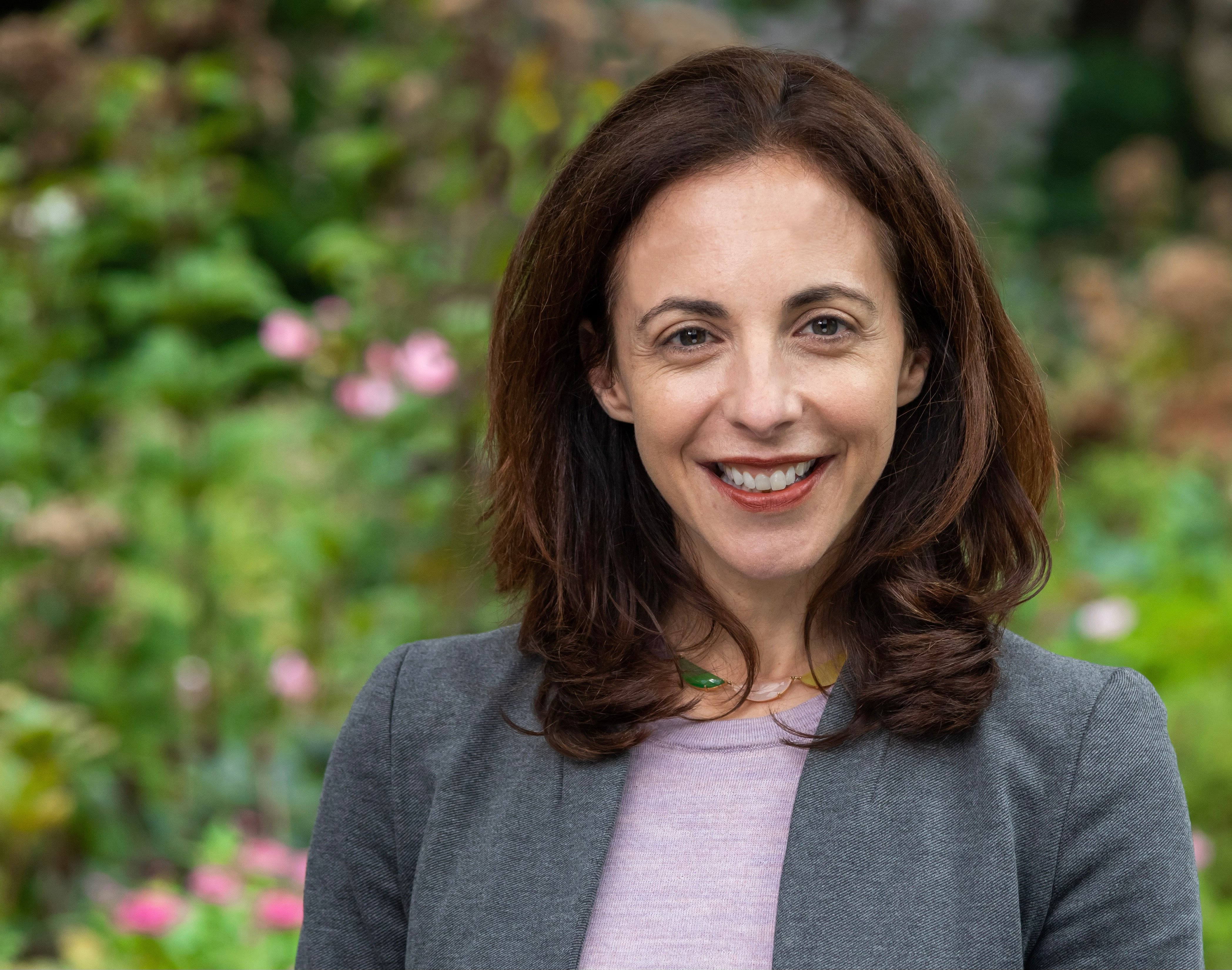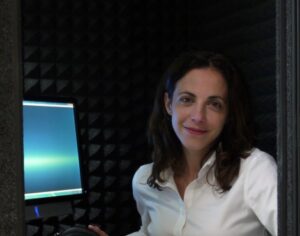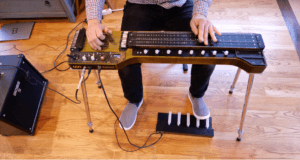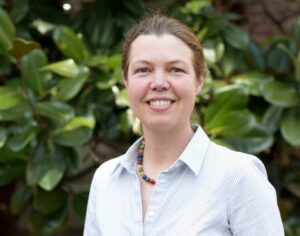The Department of Music is proud to congratulate musicology faculty member and Director of Graduate Studies Elizabeth Margulis, whose forthcoming collaboration with Princeton Neuroscience Institute’s Uri Hasson, Music and the Narrative Imagination, has been awarded funding by the Dean for Research Innovation Fund for Collaborations between Artists and Scientists or Engineers. The project, which builds off of groundbreaking research performed in the Music Cognition Lab, is consistent with Margulis’ ongoing commitment to cross-disciplinary collaboration.
“Oftentimes, to do research about music that’s really interesting you need teams that include people with expertise in the humanities and people with expertise in the sciences.” (Margulis)
The primary research of the Music Cognition Lab is on the imaginative responses that listeners can have to instrumental music. Leveraging tools from natural language processing, the Lab made a remarkable finding: when played excerpts they’ve never heard before, listeners from similar cultural backgrounds tend to imagine strikingly similar narratives. Independently, Hasson’s lab took the notion a step further: in a visual experiment, participants who made similar interpretations of an ambiguous animation also demonstrated similar neural activity in various regions of the brain. When Margulis and Hasson met to discuss their research, they recognized the potential for aligning their work. By using the Hasson Lab’s methods to analyze the neural basis of the behavior identified in the Music Cognition Lab they could garner a greater understanding of the ways in which people across cultures and time have used stories to make sense of the world.
Throughout the 2023-25 academic years the Dean for Research Innovation Fund will provide direct support for a joint postdoctoral fellow who will lead the project and facilitate collaboration across the two labs. Co-supervised by Margulis and Hasson, the fellow will analyze existing fMRI datasets of narratives participants imagined while listening to musical or spoken excerpts and also lead the acquisition of additional fMRI data necessary for dissociating neural responses associated with processing low-level musical features from processing the narrative aspects of the music.
As the research takes shape, Margulis and Hasson plan to submit their findings to both neuroscience and humanities journals and to present them at key conferences within the neuroscience and music fields. Their wide-spanning publishing goals are consistent with the mission of the Fund — to allow “experts in seemingly unrelated fields to unify and expand their respective knowledge in ways that benefit both disciplines” — and the pair is hopeful that by sharing their work broadly they may be “coaxing the humanities and the sciences into closer conversation.”
“[Uri and I] have been working in parallel on coaxing the humanities and the sciences into closer conversation.”
It’s a goal that dovetails nicely with Margulis’ latest project, a newly-released co-edited volume titled The Science-Music Borderlands: Reckoning with the Past and Imagining a Future, in which she and the Music Cognition Lab synthesize discourse from international workshops connecting researchers in the humanities and the sciences. And it’s consistent with another recent accolade: a transformational National Science Foundation grant awarded to Margulis and Psyche Loui of Northeastern University for a related project that will help shape scientific knowledge about how to foster the human potential for innovation and also incorporate informational events at the intersection of psychology, neuroscience, and music with youth programs Trenton Arts Princeton and Project STEP. Margulis was also awarded a grant from the Leverhulme Foundation with Kelly Jakubowski of Durham University to investigate the relationship between imaginative responses and autobiographical memory to music.
To Margulis and Hasson’s knowledge, the Music and the Narrative Imagination project will be the first of its kind to combine cognitive neuroscience and music to understand how people use stories to make sense of the world. But in a way, the project is also self-reflective, teasing out a greater understanding of and correcting a flawed narrative that researchers in the humanities and in the sciences have allowed to fester for years — that the two fields exist in separate realms. Indeed, one can’t help but imagine the rich real-world applications that may arise from such cross-disciplinary collaborative work in years to come. Surely, there are implications within the field of media — how meanings and associations flow through networks of people — but even more crucially the findings may inform clinical settings, such as music therapy, as clinicians work to advance health and well-being through new and innovative approaches. The possibilities are vast and the potential exciting.
Congratulations, Lisa!
In Other News
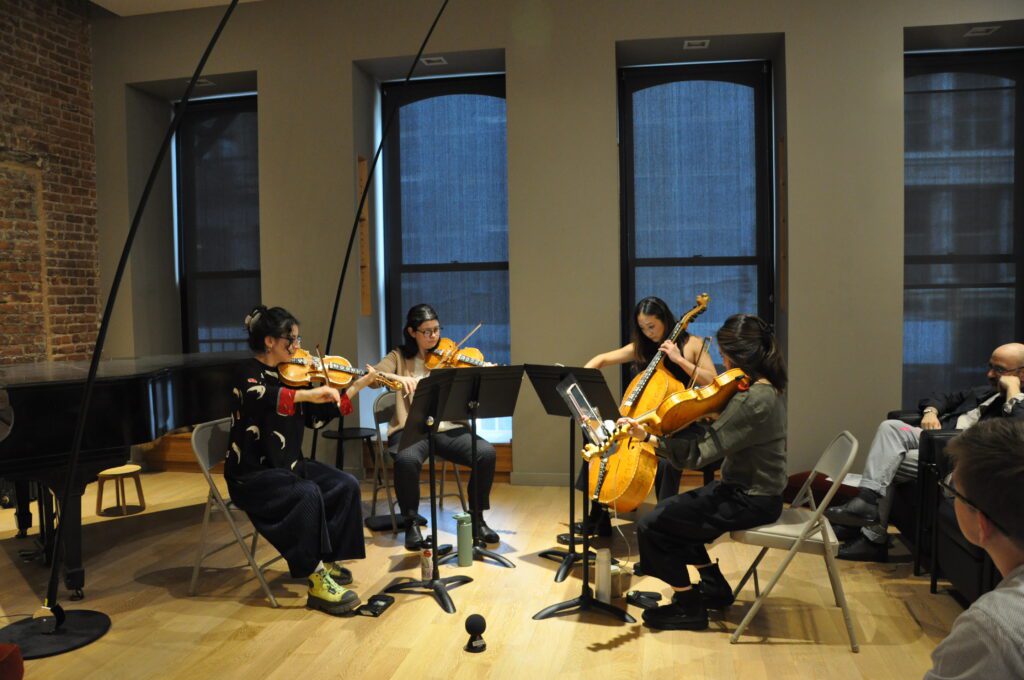
Resonant Revival: How a Norwegian Folk Fiddle Found a New Voice at Princeton
May 19, 2025
Dan Trueman, Chair of the Music Department, introduces Norwegian folk instruments to a new generation of composers and performers.
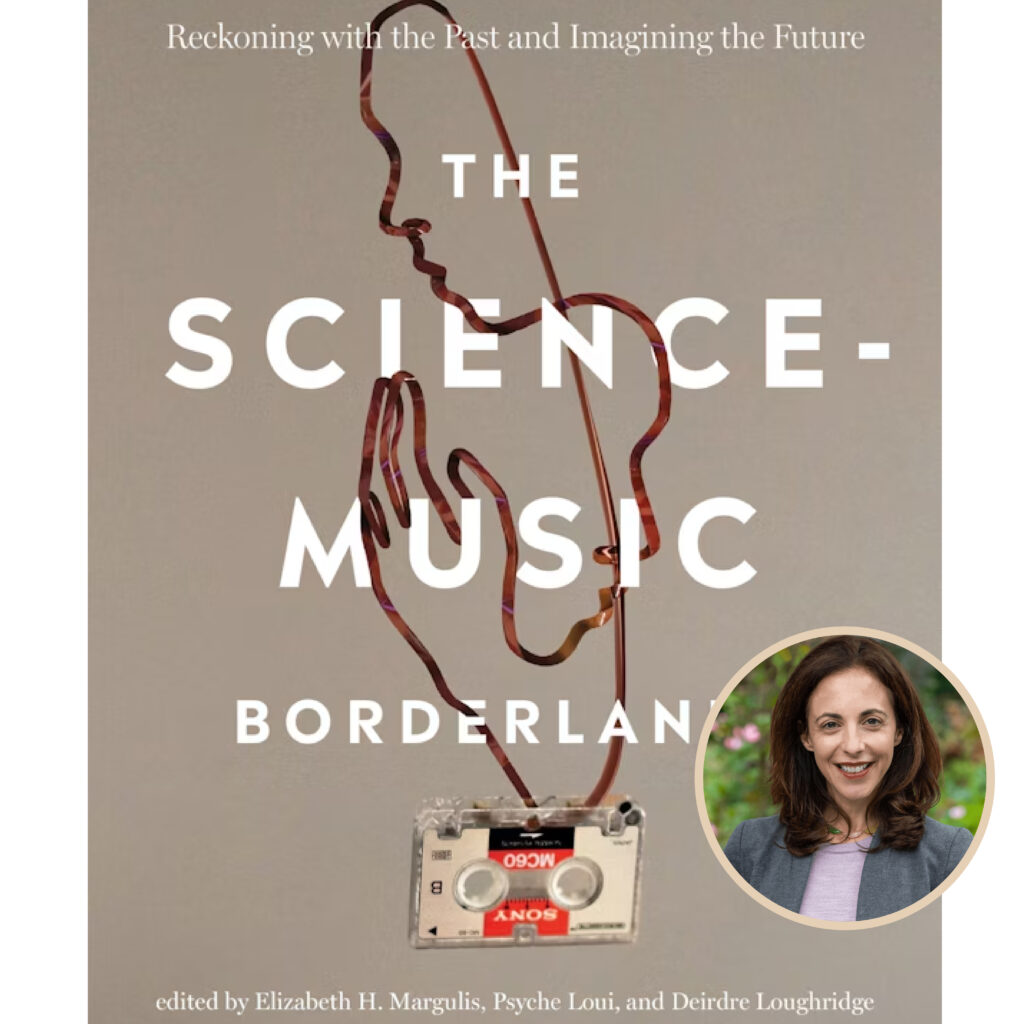
Elizabeth Margulis on the Frontiers of Music Cognition
Jan 22, 2025
The Department of Music is thrilled to congratulate musicology professor and Director of Graduate Studies Elizabeth Margulis, who has received the Ruth A. Solie Award for her editorial contributions to The Science-Music Borderlands: Reckoning with the Past and Imagining the Future.

Announcing the Launch of Princeton in Leipzig
Jan 7, 2025
Enrollment in “Princeton in Leipzig” has been extended to March 2, 2025! The Princeton Music Department is excited to announce the launch of Princeton in Leipzig, a summer study abroad …

